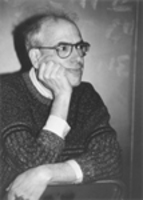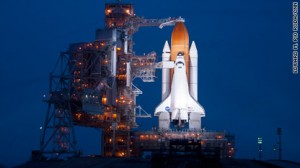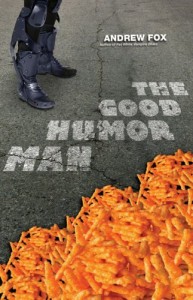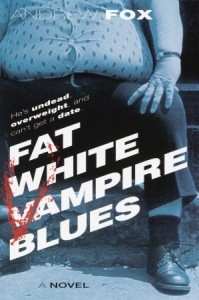

_________________________________________________________________________
It’s over.
With the final launch of the last of the space shuttles today, we are witnessing the end of “NASA Classic,” manned missions into space aboard vehicles designed and built by the government-space-industrial complex. An age that began in 1960, four years before I was born, is coming to a close.
That’s not to say that Americans will never again travel into space, or that they will only do so as passengers on rockets built by other nations. But whenever Americans eventually return to space, it will be thanks to a mode of development and procurement far different from the top-down, heavily bureaucratic, NASA-centric model we’ve been familiar with up till now.
It’s odd for me to think that the last moon voyage is as historically distant to my boys as the final years of the Herbert Hoover Administration were to me when I was their age. They haven’t yet thought to ask me why we stopped going to the moon; not even Levi, my oldest, who has shown a strong interest in astronomy and the planets. Whenever they get around to asking, I suppose I’ll answer, “We stopped going because we’d done it already. We brought back our moon rocks. Just like the shirt says — ‘My parents went to the moon, and all I got was these dumb rocks and bragging rights to beating the Soviet Union.'”
I’ll tell them we’ll go back to the moon when we have a real reason to go back. Meaning, whenever someone figures out how to make money from going there and doing things there.
In the meantime, we have J. G. Ballard and Barry N. Malzberg to read.
Younger SF fans may not realize this (nor particularly care), but there was a time when both those authors were regarded by many “traditional” SF readers, those who venerated Campbell’s Astounding and Heinlein and Van Vogt, as heretics, traitors to the true faith of science fiction. Because they didn’t believe the hype of the Space Age. Because they, unlike most of their peers, predicted it would be a transitory phase, that the public and the sponsoring governments would grow bored of it, and that it would ultimately prove to be far more expensive than we were willing to pay, given the limited goals set forth. They also anticipated that organizational and personal pathologies would be among the factors to grind the Space Age to a halt.
Ballard, great fan of the Surrealists, left us painterly images of the ruins of the Space Age, stories set in a Cape Kennedy as abandoned and desolate as Chernobyl. Gary Westfahl has a perceptive essay on this.
Ballard, unfortunately, did not live long enough to watch the final Space Shuttle flight lift off today. Barry Malzberg, however, is still very much with us. His trio of early 1970s novels on the collapse of the space program, Beyond Apollo, The Falling Astronauts, and Revelations, focused on how the intersections of the bureaucratic rigidities of NASA, the psychological vulnerabilities of the astronauts, and the unforeseen terrors of the extraterrestrial environment would lead to personal and organizational disaster and decay. Barry’s biggest “I-told-you-so” moment came in 2007, when NASA astronaut Lisa Marie Nowak drove cross country wearing a diaper and packing a BB gun to assault her rival for the affections of a fellow astronaut. If Hollywood ever makes a bio pic based on Lisa Marie Nowak’s story, Barry should get an acknowledgement in the credits.
Barry, in observance of the day, I raise a glass of Tang in your honor!





I read the article and thought it was very interesting. Can you recommend one of Barry’s books to me that I might like when I am in the mood to read again. Poor Lisa Marie Nowack. Can you imagine that being your legacy?
There is one casualty of the Shuttle program who really needs to be given a special rememberance: Greg Jarvis, Challenger Astronaut. He helped making the Shuttle a vehicle that aided in terrestrial commercial ventures. Jarvis was rewarded by his work on the Hughes 376 spin-stabilized spacecraft. He was selected from over 500 Hughes engineers. Jarvis was bumped from the previous Shuttle flight by Senator Bill Nelson, the creep from Melbourne and currently the Stupidest Senator. So Nelson owes his life to Astronaut Jarvis. I will never forget that day.
Welcome to readers sent here from Instapundit, and thanks to Glenn Reynolds for the link. Please take a look around while you’re here, and come on back.
Hey, Andrew! Cool blog!
My favorite Malzberg books are GALAXIES and HEROVIT’S WORLD, both masterpieces.
Adam, congrats on your Nebula nomination this year. I hope to see you and your better half soon. Thanks for checking out my site.